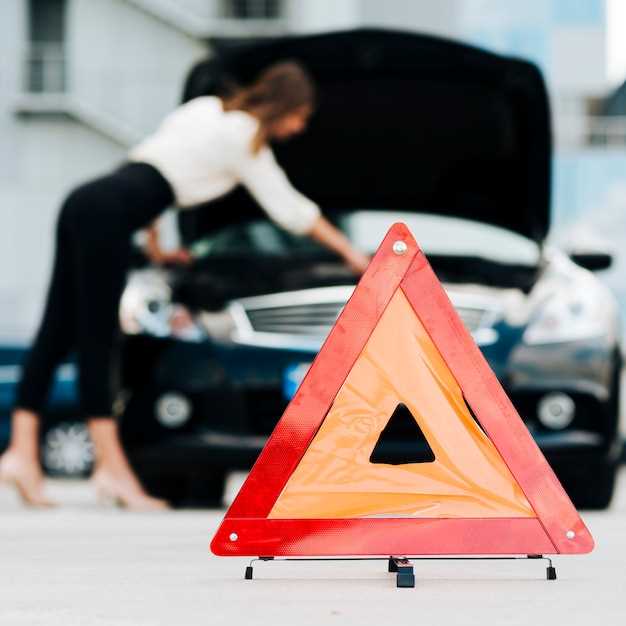
Experiencing a car accident can be a distressing event, especially when your vehicle is deemed a total loss. In such situations, it is crucial to understand the steps you need to take to handle the aftermath effectively. Knowing how to navigate the complexities of insurance claims and the implications of your car being totaled will help you regain control after this unfortunate incident.
Firstly, it’s essential to report the accident to your insurance company as soon as possible. Insurance providers often require prompt notification, and delays might negatively impact your claim. When reporting the incident, provide all relevant details, including the circumstances of the accident and any police reports, to facilitate a smoother claims process.
After filing the claim, your insurance adjuster will assess the damage to determine whether your vehicle is indeed a total loss. A car is typically categorized as a total loss when the cost of repairs exceeds a certain percentage of its market value. Understanding how your insurance policy defines a total loss can equip you with valuable insights as you negotiate with your insurer regarding compensation for your loss. Be prepared to discuss the value of your car and gather evidence to support your case.
Ultimately, navigating the aftermath of a totaled vehicle requires a clear understanding of your insurance rights and obligations. By following the appropriate steps, you can minimize the stress associated with the situation and ensure that you are fairly compensated for your loss.
Documenting the Accident and Gathering Evidence
After your car has been totaled in an accident, it is crucial to document the scene thoroughly and gather all necessary evidence. This process not only helps in determining the total loss of your vehicle but also facilitates communication with your insurance provider.
Begin by taking detailed photographs of the accident scene. Capture multiple angles of the damaged vehicle, any other cars involved, and the surrounding environment. Ensure you have clear images of license plates, street signs, and any relevant road conditions that may have contributed to the accident.
Collect witness statements and contact information from anyone who saw the incident. Eyewitness accounts can be invaluable in establishing the facts of the case when discussing with insurance companies.
Document your injuries, if applicable, by seeking medical attention and keeping a record of all medical reports and bills. This is especially important if you intend to claim compensation for personal injuries. An official report from law enforcement can also aid in presenting your case to your insurer, as it serves as an authoritative account of the event.
Finally, keep all related documents organized, including your insurance policy details, correspondence with your insurer, and any receipts for expenses incurred due to the accident. Proper documentation will help streamline the process of filing your claim and ensure you adequately address the total loss of your vehicle.
Understanding Your Insurance Policy and Coverage

After your car is deemed a total loss following an accident, it is essential to have a clear understanding of your insurance policy and the coverage options it provides. Insurance policies can vary widely, and knowing the details can significantly impact the outcome of your claim.
Coverage Types: Primarily, you should be aware of the different types of coverage included in your policy. Typically, collision coverage pays for damages to your vehicle regardless of fault, while comprehensive coverage protects against non-collision-related incidents, such as theft or natural disasters. Knowing whether you have these coverages can affect your ability to claim for a total loss.
Loss Assessment: Insurers will assess the loss to determine whether your vehicle is indeed a total loss. This assessment usually involves evaluating the cost of repairs versus the car’s market value. If the repair costs exceed a certain percentage of the vehicle’s value, the insurer may classify it as totaled. Familiarizing yourself with these criteria can help you manage expectations during the claims process.
Claim Process: Initiating a claim after your car is totaled requires specific documentation, including a police report, photographs of the damage, and any relevant information regarding the accident. Understanding your insurance company’s claim process can streamline your ability to receive compensation efficiently. Be sure to keep records of all communications and submitted documents to facilitate the process.
Additionally, it’s important to review your policy limits and deductibles. If your total loss claim exceeds the limits of your coverage, you may have to bear some costs out of pocket. Understanding these limits ensures you are prepared for any financial responsibilities you might face.
Final Settlement: Once your claim is approved, your insurer will provide compensation based on the market value of your totaled vehicle, minus any deductibles. Familiarize yourself with how market value is determined–sometimes it includes considerations such as depreciation and local car market conditions. If you disagree with the settlement offer, you have the right to negotiate or challenge the valuation with supporting evidence.
In summary, a thorough understanding of your insurance policy and its provisions is crucial when dealing with a totaled vehicle. Being informed about your coverage can empower you during the claims process, ensuring that you receive the compensation you deserve for your loss.
Navigating the Total Loss Claim Process

When your car is deemed a total loss after an accident, the insurance claim process becomes critical. First, contact your insurance provider to report the incident and initiate your total loss claim. Be prepared to provide details such as the date of the accident, the extent of damage, and any police reports filed.
Your insurance company will evaluate the damage, often sending an adjuster to assess the vehicle. This evaluation helps determine the actual cash value (ACV) of your car before the accident. The ACV is crucial for understanding the compensation you can expect, as it reflects the car’s market value minus depreciation.
Once the assessment is complete, the insurance company will notify you of their findings. If you disagree with the estimated value, you have the right to negotiate. Gather supporting evidence such as maintenance records, photographs, and comparable sales listings to strengthen your case for a higher settlement.
After reaching an agreement on the loss amount, ensure you understand the timeline for receiving your payment. The insurance company should provide clear instructions regarding the payout process, whether it’s a direct payment to you or to the lienholder if you still owe money on the vehicle.
Keep all communication documented. Maintain records of phone calls, emails, and any correspondence related to your claim. This documentation is essential in case you face disputes or delays during the claims process.
Finally, explore your options for a replacement vehicle once you receive your settlement. You may also want to review your insurance policy to examine coverage aspects that might apply for future accidents, ensuring you have adequate protection moving forward.




